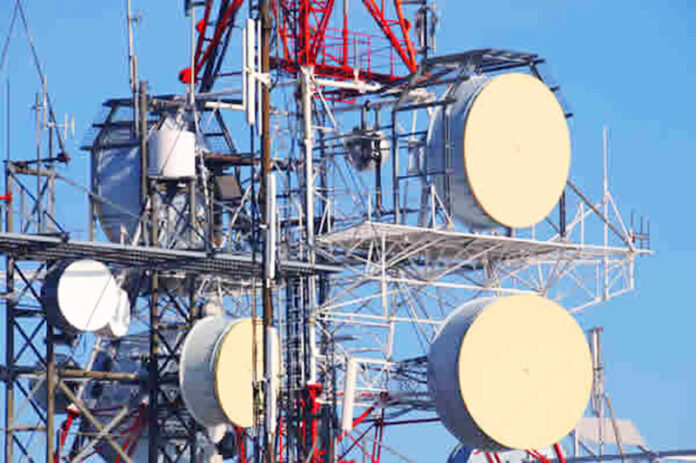‘Harsh Environment Slows Telcos’ Investment, Impacts Service Quality’
CHIGOZIE AMADI
Telecoms sector in Nigeria has come under siege from a barrage of challenges which operators said are fast crippling their potential for growth and gradually pushing them in dire straits to offer seamless services.
In admission of their frustration which they believe the government through its regulatory agency is underrating, the service providers’ umbrella body, Association of Licensed Telecom Operators of Nigeria (ALTON), recently stated that telecommunications companies in Nigeria are becoming reluctant to invest more in infrastructure as they continue to contend with a tough economic environment.
ALTON Chairman, Gbenga Adebayo, attributed the increasing decline in telecom investment to the harsh economic environment of the country.
He said the reluctance of the telcos to invest and reinvest in the sector is taking a toll on the deteriorating state of their infrastructure and low service quality in the country.
Since the operators are left to themselves without significant support by the government, the telcos flew the kite by proposing tariff increases on their service prices for both voice calls and data.
ALTON said the implementation of the proposal will significantly help its members to offset operational costs and address economic challenges.
Another major concern of the telcos that is aggravating their plight is the legacy debts of N200 billion being owed by deposit money banks (DMB) to mobile network operators over the use of Unstructured Supplementary Service Data (USSD).
While the Nigerian banks have reportedly commenced the payment of the debt following the payment plan that was agreed upon in the last quarter of 2023 due largely to the direct involvement of Central Bank of Nigeria (CBN) governor Olayemi Cardoso, ALTON chairman said the banks have been slow to make payments, causing the debt to drag on for longer.
According to him, “The N200 billion, which consists of the principal sum and the interest is likely to rise if the payment continues to drag. We believe that our friends in the banks can do better than what they are doing.”
For six years, the debt has been a source of dispute between telcos and banks, requiring the intervention of the CBN and the Nigerian Communications Commission (NCC).
Industry analysts have however expressed their reservations over the slow pace of payment by banks, noting that the CBN is more on the side of the banks who are debtors than NCC is to the telecom companies, thereby subjecting them to frustration and suffering in silence.
Also causing the telcos to panic in the market is the full entry of Starlink into the Nigerian market.
The Starlink satellite is operated by SpaceX and owned by Elon Musk. It aims to deepen internet and broadband penetration in Nigeria and deliver a global broadband network, using a constellation of Low Earth Orbit to provide high-speed internet coverage with capacity to penetrate into rural and geographically isolated areas where internet connectivity is hardly achievable.
Since its launch in Nigeria, the major telcos in the country have been restless because of the anticipated competition threat they believe the new satellite operator would pose to them.
Speaking on the impact Starlink will have on the telcos in Nigeria, a representative of the Association of Telecommunications Companies of Nigeria (ATCON) who preferred anonymity said that there are existing satellites in Nigeria, but the one of NigComSat hasn’t really been effective because it doesn’t have the necessary backing of the government and it is not adequately protected by the government.
“Starlink will be positioned to serve both public, corporate organisations and the retail market, a feature which makes it totally different from already existing satellites in Nigeria. There are other satellite companies. The only difference is that they are going to serve the retail market, and corporate organisation. However the previous satellite in Nigeria concentrated on selling capacity to our members,” he said.
The launch of Starlink in Nigeria, according to industry experts, could mean a lot for the country in the area of broadband penetration, job creation, increased investment and revenue generation.
Prior to Starlink launch in Nigeria, the four major Global System for Mobile (GSM) operators have been recording steady drops in their subscriber base.
Telcos’ subscriber numbers are fast dwindling, not just because of their users abandoning the lines, but because of one government policy or the order.
Last year, there was an NCC directive which mandated that subscribers of all Mobile Network Operators (MNOs), whose SIMs are not linked to NIN, should be deactivated.
The implication is that those who do not have their SIMs linked to the National Identity Number or whose lines have been linked but are yet to be verified will be disconnected.
As of June, this year, several subscribers have been restricted from using their lines while others have been fully deactivated. Some of the victims of this order who could not sort things out decided to abandon their lines, especially those who have multiple Subscriber Identity Modules (SIMs).
NCC directive stipulated that NINs that have been submitted but not verified, such lines are also to be barred on or before March 29, 2024, where five or more lines are linked to an unverified NIN.
Similarly, where less than five lines are linked to an unverified NIN, such lines are to be barred on or before April 15, 2024.
Beyond the NIN-SIM linkage dilemma, service providers’ plight seems to be compounded by another order issued by NCC, directing them to commence the deactivation of mobile phones owned by persons under the age 18 years.
Between February 2023 and February 2024, the telecom operators’ subscriber base shrunk by a whopping figure of 7,152,492.
In February 2023, the operators had 226,835,732 subscribers, but the number declined to 219,683,240.
Another issue impending the vibrant growth of the telecom industry include low exploration of the Fifth Generation (5G) technology due to cost of infrastructure, cost of phones and devices compatible with the technology.
The high record of incidents of theft and vandalism of the telcos infrastructure is another worrisome issue the government and relevant stakeholders will need to practically address to concerned impediments to save the telecom industry from stagnation or even retrogression, since it is one of the major contributors to the country’s economy.

























